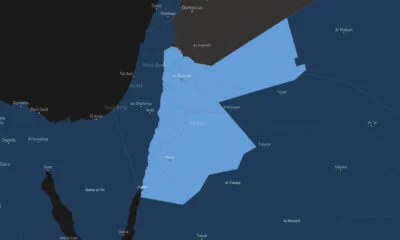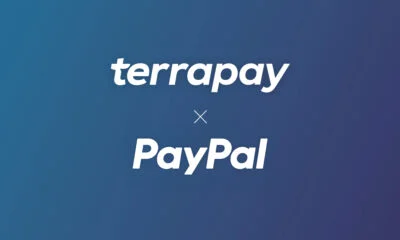News
Starlink Teams Up With Elcome To Offer Maritime Internet
The new service will give ships and luxury yachts internet access with speeds up to 100 times faster than currently available.

Elon Musk’s Starlink satellite internet startup has partnered with Elcome International — a marine electronics company headquartered in Dubai, United Arab Emirates. The pairing aims to launch a new maritime-based internet service with unparalleled transfer speeds.
According to Elcome, the Starlink-backed service will offer internet speeds that are 100 times faster than conventional satellite solutions, helping the luxury yacht sector to provide a better service to clients, as well as boosting download speeds for merchant ships and even oil rigs.
“We are so excited to bring the benefits of Starlink to our customers. It’s not just about fast internet, but the opportunity for us to implement real-time remote monitoring and autonomy solutions for these customers in ways that were not previously possible. Also, consider the benefit to crew members who will now be able to better stay in touch with family and friends while out at sea,” says Jimmy Grewal, Elcome Executive Director.
Also Read: Kuwait Aims For Digital Transformation With Google Partnership
The service uses Starlink’s low-orbit satellites, which currently represent the largest constellation of their type at such an altitude. Elcome will provide their customers with installation, integration, and field support for Starlink connections, with multi-antenna arrays delivering super-fast, low-latency bandwidth.
News
Google Releases Veo 2 AI Video Tool To MENA Users
The state-of-the-art video generation model is now available in Gemini, offering realistic AI-generated videos with better physics, motion, and detail.

Starting today, users of Gemini Advanced in the MENA region — and globally — can tap into Veo 2, Google’s next-generation video model.
Originally unveiled in 2024, Veo 2 has now been fully integrated into Gemini, supporting multiple languages including Arabic and English. The rollout now brings Google’s most advanced video AI directly into the hands of everyday users.
Veo 2 builds on the foundations of its predecessor with a more sophisticated understanding of the physical world. It’s designed to produce high-fidelity video content with cinematic detail, realistic motion, and greater visual consistency across a wide range of subjects and styles. Whether recreating natural landscapes, human interactions, or stylized environments, the model is capable of interpreting and translating written prompts into eight-second 720p videos that feel almost handcrafted.
Users can generate content directly through the Gemini platform — either via the web or mobile apps. The experience is pretty straightforward: users enter a text-based prompt, and Veo 2 returns a video in 16:9 landscape format, delivered as an MP4 file. These aren’t just generic clips — they can reflect creative, abstract, or highly specific scenarios, making the tool especially useful for content creators, marketers, or anyone experimenting with visual storytelling.
Also Read: Getting Started With Google Gemini: A Beginner’s Guide
To ensure transparency, each video is embedded with SynthID — a digital watermark developed by Google’s DeepMind. The watermark is invisible to the human eye but persists across editing, compression, and sharing. It identifies the video as AI-generated, addressing concerns around misinformation and media authenticity.
While Veo 2 is still in its early phases of public rollout, the technology is part of a broader push by Google to democratize advanced AI tools. With text-to-image, code generation, and now video creation integrated into Gemini, Google is positioning the platform as a full-spectrum creative assistant.
Access to Veo 2 starts today and will continue expanding in the coming weeks. Interested users can try it out at gemini.google.com or through the Gemini app on Android and iOS.



















